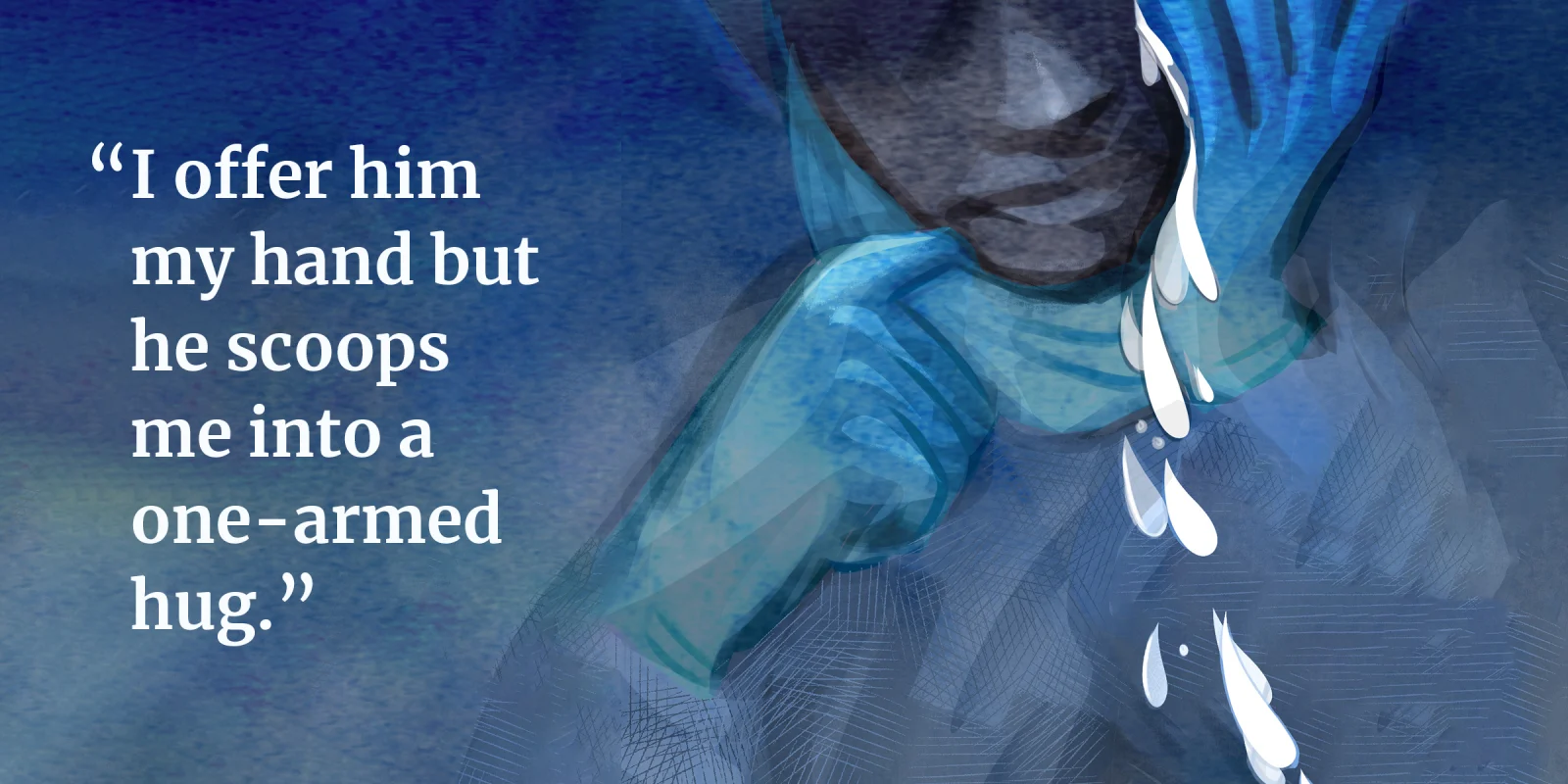This is part of the Medical Humanities series on Op-Med, which showcases creative work by Doximity members. Do you have a creative work related to your medical practice that you’d like to share? Send it to us here.
“The Second Wave”
It’s Christmas eve.
He’s placed his military cap on the top of the chair.
He always wears it.
The attending is the only one
in the room, tenderly brushing the hair from his wife’s forehead
like one cleans smudges from a child’s face,
with an open palm — like a mom.
She’s talking, but the glass muffles it.
I shuffle to the window beside him and he startles,
mottled hands braced on the sill,
eyes darting from monitor to the figure in the bed.
Beloved, grotesque.
I offer him my hand but he scoops me into a one-armed hug.
The official term for what we are doing is ‘withdrawing care.’
We withdraw air and allow her chest to
cease its staccato rise and fall.
The instruments zero themselves
and he makes himself watch like it’s a punishment.
It is.
What was your inspiration to write this poem?
Writing about the pandemic has helped me process the sheer scale of it. I have read so many testimonies from other trainees and health care workers and count those as influences. This particular story affected me deeply. I grieved with this family. How terrible that acts of love — visiting and hugging — could result in such destruction.
I wrote this as an intern in the throes of COVID-19. The hospital was overflowing and it was profoundly surreal to be a young doctor looking at so much death in the first year of training.
Why did you choose this medium? What interests you about it?
I love poetry. I’ve written ever since I learned English after coming to America. The arts have a true power to heal and express empathy.
I was an active writer as an undergraduate at Barnard college and participated in readings. Though I chose a career in the sciences, that love has never left me.
I firmly believe that art has the capability to heal. It was my aim to share this love for art as a resident and COVID-19 derailed that a bit last year.
How did writing this poem help you heal, especially after the wave of deaths following the Delta variant?
Caring for patients during this time was one of the hardest things I have ever had to do. Often, patients were intubated and sedated when they arrived in the ICU, and I never got the opportunity to interact with them. Most never woke up again. Instead, I spoke to their families over the phone or a video call, sometimes multiple times a day at all hours, updating them with the facts. Visitation in the hospital was restricted at the time, so the only time I was able to speak with families in person was during situations described in the poem when they were allowed to say their final goodbyes. I remember grieving with this particular family and remember thinking how sad and bitter it was that their love — and my empathy — were restricted to these virtual platforms. This was before the vaccines were released to the public; it was heartbreaking to see the aftermath of a disease transmitted by the very acts of love and connection like hugging and kissing. Writing about this moment helped me meditate on the other moments I had shared with my other patients and honor and grieve for them.
Could you expand on the thought, "Though I chose a career in the sciences, that love has never left me?" It's a beautiful thought, and we wanted to see if there was more to this feeling you expressed.
The grueling training process for physicians, and the long, unrelenting hours of training in residency, is often made possible at the expense of other hobbies and interests. Time becomes a luxury. Although I love medicine, art is the practice that makes me human, a better physician, and a better person. In the past two years of this pandemic, writing has become a way to acknowledge my own humanity and the burden of bearing witness to so much grief.
Dr. Gagan Verma is a resident doctor and researcher. Forever looking for art in everything.
Illustration by April Brust







